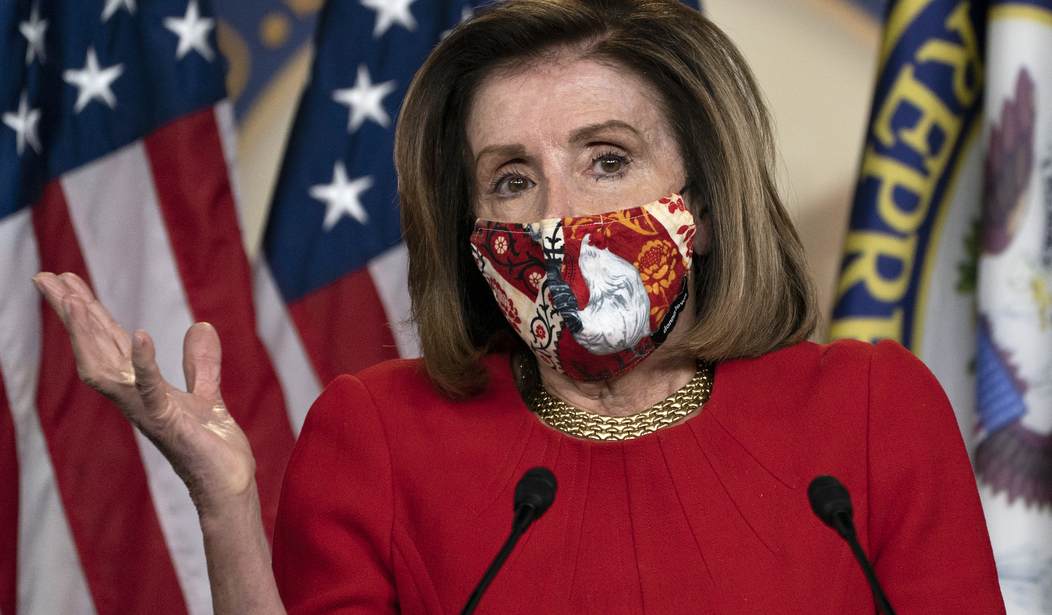If House Speaker Nancy Pelosi and Senate Majority Leader Chuck Schumer have their way, competitive elections to determine the political leadership of our nation will be a thing of the past. Voters whose experiences in the 2020 elections have left them with major concerns about election integrity would see their concerns raised to new heights, were the new Pelosi-Schumer election law reform scheme to become law.
That’s the virtually inevitable outcome of enactment of H.R. 1, the inappropriately named “For the People Act.” After even just a quick glance, one can see it would be more accurate to have named the bill the “For the Politicians Act.”
If enacted into law, this legislation would overturn more than two centuries of American political tradition and practice, and would practically invite voter fraud. Rather than use the Constitution’s framework, outlined in Article I, Section 4 – which grants to the many and varied state legislatures the authority to prescribe the “Times, Places, and Manner of holding elections for Senators and Representatives,” which, by decentralizing election administration among the various states, makes voter fraud more difficult – H.R. 1 would overturn that by essentially federalizing the vast majority of election law.
Worse, if enacted, H.R. 1 would virtually codify almost all the problems we saw in the 2020 elections.
Across a wide variety of states in various parts of the country, voters were left wondering about the fairness of the rules and their applications. Overturning current law by enacting H.R. 1 would result in even more doubts in future elections.
Section 1004 of the bill, for instance, would prohibit states from requiring more than a signature to verify an individual’s eligibility to register to vote. That is, no longer could a state require presentation of some form of government-issued photo identification to confirm his identity before an individual would be allowed to register to vote.
Recommended
Section 1903 would prohibit states from requiring voter identification at the polls before an individual is given a ballot to vote. Instead, an individual would only be required to sign a paper attesting that he is who he says he is.
I need to present a government-issued photo identification card of some kind before I get on a plane to travel. Is it too much to ask that I do the same before I register, or cast a vote?
Section 1012 automatically registers to vote eligible “individuals” whose names and addresses appear in certain state and federal government databases, like recipients of food stamps or welfare. Note the language – it specifically uses the word “individuals” instead of “citizens.” Why? Because several of those databases in question include individuals who are not citizens, and the authors of the legislation would rather register everyone, including non-citizens, than allow some individuals to choose to remain unregistered.
Section 1071 prohibits states from rejecting any voter registration application, by criminalizing the refusal to accept a voter registration application. Read that again, slowly. If enacted, H.R. 1 would criminalize the act of refusing to accept a voter registration application, even if the application does not meet the requirements.
Given that the new law would criminalize the refusal to accept a voter registration application, it should be no surprise that Section 1201(d) of the law would also criminalize challenging any registrant’s eligibility to register or to vote. Violating this provision would carry with it a fine, and imprisonment up to one year.
Section 1621 overturns many states’ laws by requiring all states to allow registered voters to cast an absentee ballot by mail without providing a reason for doing so. Section 1621(e) takes it even further – this provision requires states to accept as valid, and count, mailed-in ballots that are postmarked before or on Election Day, so long as they are received up to 10 days after the election.
Democrats who proposed this law also try to exploit young people’s support for liberal politicians by adding provisions allowing 16-year-olds to register to vote. Because the bill makes it a crime to challenge any registrant’s ability to register or to vote, it's possible those 16-year-olds could vote, because we won’t any longer be requiring proof of identification on Election Day – and, even if a 16- or 17-year-old were challenged, all he would have to do is sign a statement declaring that he is eligible to vote.
Other provisions in the legislation would have the effect of requiring that all states allow all felons to vote; would force states to extend periods of early voting; would mandate same-day and online voter registration; would make it a crime to “discourage” anyone from voting; and would reduce states’ ability to remove voters from their rolls.
Finally, this bill contains a Trojan horse – it’s an incumbent protection scheme camouflaged as a liberal “share the wealth” contraption. If certain thresholds are reached, it offers candidates for federal office a six-to-one match on contributions up to $200, so a $200 contribution magically becomes a $1,400 contribution. That must look very attractive to the kind of candidates who believe they’ll have a hard time raising money. What they may not realize, though, is that in order to receive the matching funds, the candidate also must agree to limit his fundraising threshold to $1,000 per individual, rather than the current individual contribution limit of $5,600 per cycle. So some candidates will find it much easier to raise money, but, because they’ve agreed to limit their ability to raise money, they won’t be able to raise enough to win.
H.R. 1 would virtually nationalize our election system. It would make voter identity verification more difficult, not less; would vastly expand the voter rolls; make proper maintenance of those rolls more difficult; and would remove local control and accountability. It goes in the exact opposite direction of the way we need to go. It must be defeated.

























Join the conversation as a VIP Member